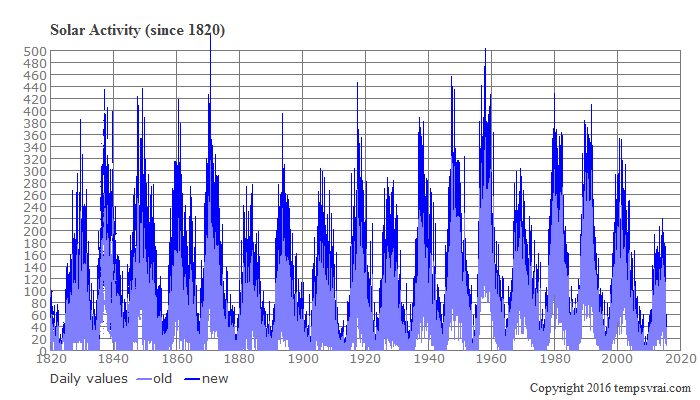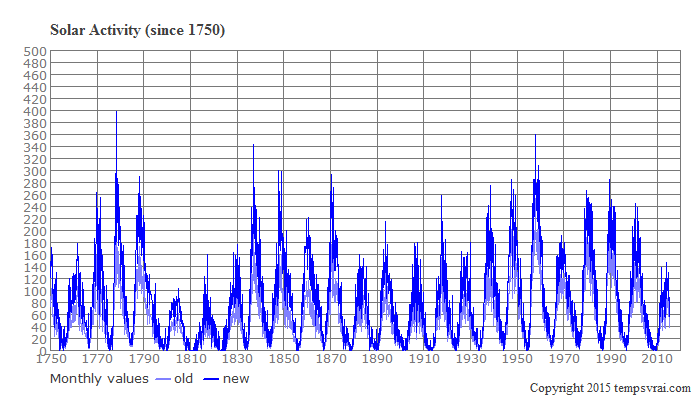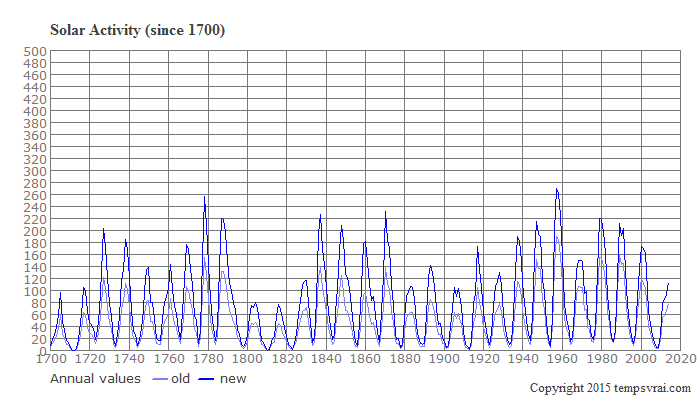18.116.8.110
Current solar activity, sunspot index and sunspot numbers, Observation of sunspots and solar activity forecast, prediction of the solar activity. Sunspots in the northern hemisphere and sunspots of the southern hemisphere. sunspot numbers since 1700, daily sunspot numbers since 1818. solar activity diagram, sun cycle diagrams, strong sun cycle, weak sun cycle. historical solar activity, old solar activity, new definition of solar activity. Galileo Galilei and Wolf. forecast of the next sun cycle, forecast of the next solar cycle, comparing the sun cycles. 22 year Hale cycle, 11 year Schwabe cycle, magnetic polarity, 2300 - 2400 years Hallstatt cycle, 55 years Yoshimura, 85 years Gleißberg cycle, 180 - 210 years Seuss cycle, 180 - 210 years de-Vries cycle, 1470 years cycle of Bond- and Dansgaard-Oeschger events, intensity of the solar wind, solar activity of suns backside. Maunder Minimum, Dalton Minimum, Modern Maximum, Oort Minimum, Mittelalterliches Maximum, Wolf Minimum, Spoerer Minimum. Flares and aurora, space weather, Observatory, solar telescope, SDO, Satellites, brightness of the sun, geomagnetical storms. The Zeeman Effect describes the solar magnetic field as the driver of the sunspots. Royal Observatory of Belgium by the World Data Center.
New data for solar activity
New data set for solar activity published
On 1st July 2015, the sunspot index has been replaced by a homogenized version.
For more information, see ▸SIDC/SILSO.
The following diagrams are comparing the old and new data set for the solar activity.
Solar activity since 1820

Fig.1: Daily values since 1820, old and new data set.
Solar activity since 1700

Fig.2: Monthly values since 1750, old and new data set.

Fig.3: Annual values since 1700, old and new data set.
← Back
↑ Top of the page
MORE THEMES
weather.plus
P.O.Box 1206, 55280 Nierstein, Germany
Email: info@weather.plus
© tempsvrai.com 1992-2024
All rights reserved.
P.O.Box 1206, 55280 Nierstein, Germany
Email: info@weather.plus
© tempsvrai.com 1992-2024
All rights reserved.



